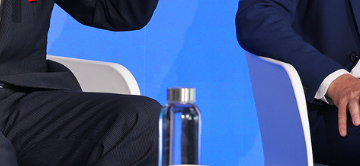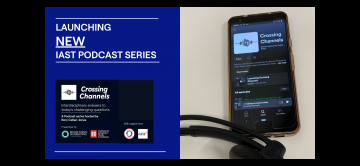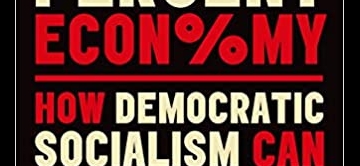Let's take the time to realize and reaffirm that the Russia-Ukraine war is a scandalous, anxiety-provoking, senseless, and pointless drama. The suffering of Ukrainians is profound: the number of Ukrainian refugees who have fled their country now stands at over 6.0 million, compared with 6.4 million Syrian refugees and 6.4 million Afghan refugees, the latter two groups being non-negligibly dependent on the misguided and catastrophic "best responses" of American diplomacy. Next come Sudanese refugees (Sudan and South Sudan) at 3.8 million and Myanmar refugees at 1.3 million. The Ukrainian drama, which is partly based on a civil war between Kiev and the Russian-speaking regions (Donbass and Crimea), is by no means marginal. Once again, the Americans have a front-row seat.
What if, instead of the best military responses (coupled with economic sanctions), we responded with "intelligence and courage" type thinking, inspired by an out-of-the-box vision of strategic game theory, to get out of the impasse that is, in this case in particular, a bad Nash equilibrium?
It's time to define a peace plan. Talking peace in wartime should be the role of diplomats, the specialists in nuance. Where are they?
The war can only end when realistic and credible security conditions for all parties are met. Ukraine wants to develop socially, politically, and economically, with its borders respected, without the constant, stressful, and threatening presence of a sword of Damocles. So does Russia.
We must have the courage to realize that we - Ukrainians, Russians, and Westerners - are currently mired in a vicious circle where each side reacts to the actions and strategies of the other. A balance of rational but short-sighted reactions has developed in a hellish sequence: the USA-EU-NATO coalition refuses Russia's demands to avoid the NATOization of the countries on its borders, in order to reduce its sense of insecurity1; Russia then positions itself at the gates of Ukraine, the old Rus; the USA-EU-NATO coalition hardens its tone and announces the military reinforcement of NATO at Russia's gates; Russia invades Ukraine; the USA-EU-NATO coalition imposes economic and diplomatic sanctions on Russia, its leaders, and their oligarch friends; Russia intensifies its attacks on Ukraine; the coalition proceeds with massive arms shipments to Ukraine and escalates sanctions against Russian institutions, athletes, artists and ordinary citizens; Russia consolidates its ties with China; and so on and so forth. A back-and-forth of seemingly rational strategic reactive behavior, leading inexorably to a downward spiral at the expense of the most vulnerable populations of Ukraine, Russia, and Europe in particular.2
In the West, politicians, diplomats, journalists, ex-ambassadors, ex-military personnel, and columnists hold a repetitive one-way war discourse. To get out of this, we need more than the current policy of "more arms for Ukraine". Why not have more intelligence and courage to think outside the box? Difficult indeed, but necessary. The search for an alternative win-win balance based on a peace project is subtler and intellectually and morally more demanding than the pursuit of war. Still, this search is essential to all populations devastated or bruised by war.
I confess that getting out of a bad Nash equilibrium is challenging. Much more so than continuing the same policy with the same logic and determination, repeating the same speeches, to acquire a so-called "advantageous negotiating position". You end up digging a dangerous hole in the backs of the ordinary world, Ukrainian and Russian first of all, but also European, American, and Canadian.
The current bad equilibrium is becoming increasingly stable as heavy weapons are sent to Ukraine and Russian attacks intensify. Russia and the West, via Ukraine, are pursuing the same somewhat illusory goal of bringing the other side to its knees. Today, we risk being entangled and chained in this bad equilibrium for a long time to come, with its daily lot of suffering, misfortune, destruction, and above all, nuclear risks, as terrible as avoidable.
The war in Ukraine is setting civilization back decades, and for no good reason. Civilizing free trade is being seriously undermined on both sides, to the detriment of the world's citizens.
We need a coalition capable of proposing a three-part peace treaty: First, the definition of a buffer zone between the Russian and NATO (USA-EU) militaries, made up of the countries bordering Russia: Sweden, Finland, Estonia, Latvia, Lithuania, Belarus, Ukraine, Georgia and Azerbaijan; Secondly, a formal commitment by the parties (Russia and NATO) to respect the borders and social, political and economic choices of the countries in the buffer zone; and Thirdly, an equally formal commitment by the parties to intervene militarily if one of them were to venture militarily into one of the territories in the buffer zone. A "defensive-type" treaty or alliance, like NATO, based on responsible freedom and reasonable balance, with incentive guarantees.
In exchange for a guarantee from Russia and the West (USA-EU) to respect the social, political, and economic choices of the countries in the buffer zone, these countries, led by Ukraine, would commit to international neutrality outside NATO and a new USSR. Under the auspices of a reinvigorated World Trade Organization, the treaty would guarantee the right of these countries to conclude trade agreements with Europe and Russia, as well as with other parts of the globe, such as China, Africa, and America. And why not have multiparty scientific, cultural, sporting, and other exchange agreements?
The leaders of the buffer zone states could then focus their energies on their respective countries' socio-political and economic development in security and freedom. Nothing would prevent them, for example, from joining the Council of Europe and other international consultative and cooperative organizations with Russia.
This treaty would enable Russia and Ukraine to reap enormous gains compared to continuing the war. For Russia, a return to the world of the most developed Western countries (trade and free trade profitable for all parties, but especially for Russia), security of its borders against NATO, and an end to sanctions. For Ukraine (as for the other countries in the buffer zone), a guarantee of territorial, political, and economic sovereignty is recognized by Russia and the NATO countries. It's as if Ukraine gained the advantages of being part of NATO without actually being part of it. And Russia would gain a militarily neutral Ukraine on its borders, whose cultural heart it might wish to reclaim.
I sincerely believe that the project could be sold, again based on huge gains for all parties, to Russia and the countries in the buffer zone, including Sweden and Finland, which would be called upon to withdraw from NATO. The project has the potential to settle recurring local wars and open up possibilities for lasting peace.
Would we need to make some specific accommodations? Perhaps. Leaving Crimea to Russia might be a small price to pay for Ukraine. As for the Donbass, it could benefit from a special status within Ukraine (like Quebec within Canada). Again, perhaps a small price to pay for Russia. The West could even develop cooperation plans (Marshall Plans) with Russia and Ukraine, costing several billion less than continuing the war.
Are there any volunteers to carry this message of peace? The alternative is an eventual division of Ukraine into two territories, one Russian and the other Ukrainian, after years or even decades of confrontation and turbulence.
1 See F.X. Nérard and M.P. Rey, Atlas historique de la Russie - d'Ivan III à Vladimir Poutine, Autrement (Flammarion) 2023. It reads: (page 13, quotation marks in the text, my translation) "The deep penetration of German troops into Soviet territory during Operation Barbarossa in 1941 once again raises the question of the difficult defense of Russian territory. This "feeling of Russian insecurity" was well diagnosed by George Keenan in his "long telegram" of February 1946; for him, to geographical insecurity was added the fear of the Western system perceived as a threat. The formation of the socialist bloc can therefore be largely explained by this worldview. Justified or not, this representation persisted and gained in scope after the fall of the USSR. It has been and continues to be mobilized by the Kremlin, particularly in view of NATO's successive advances towards Russia's borders in 1999 and 2004, and in the face of plans to integrate Georgia and Ukraine, as discussed at the 2008 Bucharest summit"; (page 72, quotation marks in the text, my translation) "After the Second World War, the USSR set up a network of satellite states. Soviet control was initially relatively flexible. In the countries liberated by the Red Army, "popular front" governments emerged, with the Communist parties exercising varying degrees of control. Initially, the Soviets aimed to build a zone of influence, a sort of buffer zone on the periphery of their new borders. The Soviet feeling of "insecurity" goes a long way towards explaining this purpose. The deterioration in East-West relations and the start of what was to become the Cold War led to a considerable strengthening and hardening of this control.”
2 The Israel-Palestine conflict is another example of this insane rationality. Israel's crushing victory ensures the medium-term revival of the terrorist ideal among Palestinian youth, adolescents and children.




